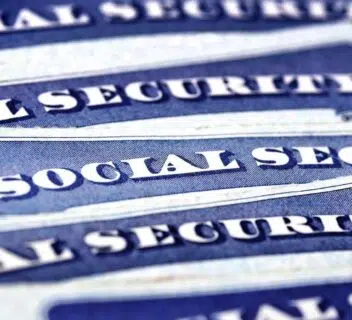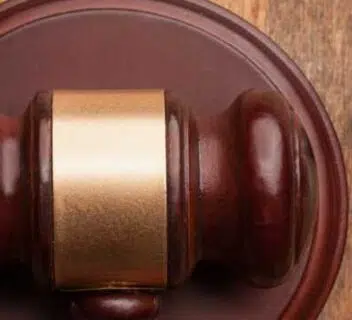Slip and Falls: What Causes Them?
The National Security Council reports that slips, trips and falls account for nearly 9 million emergency visits a year in the U.S. Of those 9 million, 2.3 million are by Americans aged 65 and older. One in every three adults age 65 and older falls every year.? As more and more baby boomers turn 65, this number has the potential to grow by an alarming number. While many people consider slipping and falling a byproduct of growing older, the truth is, anyone, at any age, can be injured as a result of a slip and fall.
Falls are also the leading cause of work accidents — second only to car accidents in terms of personal injury cases. Although they happen frequently, that’s no reason to discount the seriousness of slips, trips and falls. Broken bones, head injuries, back injuries, ankle sprains, cuts and lacerations.
But what are the slip and fall causes resulting in so many accidents every year? The answer is a combination of poor maintenance, inadequate warnings, carelessness and clutter.
Common Slips and Fall Causes
With slips, anything that makes a walking surface wet is likely to cause someone to slip. Recently polished or mopped floors, kitchen floors and bathroom floors are some examples. Floors made of slick materials such as marble, tile or terrazzo are slippery even when not wet. Snow and ice make sidewalks, parking lots and streets especially treacherous to walk on during the winter. When any of these circumstances are combined with poor lighting, the chances of slipping are even higher.
Many slip and fall accidents are actually preventable. A personal injury attorney can determine if you were hurt because of the property owner’s negligence, because of your own fault, or fault of you and the landowner. Common places where slip and fall accidents happen include:
- Malls
- Apartment buildings
- Supermarkets
- Warehouse stores
- City managed places like parks, sidewalks, and airports
If you’ve slipped and fallen in a public place – such as a mall, store, or even an apartment building – you have legal rights. An attorney can help you secure monetary compensation for your injuries and get the insurance companies to pay your accident-related medical bills and expenses.
Did you know that if you slip and fall in an apartment building, the property’s owners could be held responsible for your injuries? Generally, the landlord of the apartment building has an obligation to keep the apartment building in a reasonably safe condition, and if the landlord doesn’t do that, and as a result of that you sustain an injury, then that landlord may be held responsible for your medical treatment costs, your pain and suffering and, your time off from work,
There are many situations when the property owner may be held responsible for preventable, dangerous conditions that lead to a slip and fall injury. They include:
- Torn carpeting
- Poor lighting
- Narrow or uneven stairs
- Wet or slippery floor
- Uneven pavement
- Potholes
Lack of handrailsWith trips, clutter is key. The more clutter there is in a work area or walk area, the more likely you are to trip. Exposed extension cords and telephone cords may seem harmless at first, but tripping over one can cause serious damage. Boxes and other materials should never be stacked in hallways or walkways.
With falls, the primary culprit is walking surfaces. Bumps, potholes, and cracks in a sidewalk are all contributing slip and fall causes. Sometimes people fall because they step higher or lower than they expected; an unseen curb is likely to cause this type of “step and fall.” Stairways can also be dangerous. It’s estimated that nearly half of falls occur on a stairwell. Uneven surfaces, uneven treads, loose handrails and faulty handrails may also make people more prone to falling on stairs.
What to Do After a Stair Accident
It’s important to always practice stair safety because stairs often times present hidden dangers and stair accidents can result in serious injuries and even death. According to the National Safety Council, about 8.9 million visits to the ER are from fall victims. Victims of stair accidents may often blame themselves but the accident may not be their fault.
Stair Accidents: Negligence
If the stairs have not been properly maintained by the owner, they could be subject to negligence. If you suffer injuries as a result of the negligence, you could be compensated for your injuries and associated expenses. To constitute negligence, the owner(s) must have been aware of the hazard and done nothing to correct it. If you are hurt in a stair accident, look for these indications of possible stairway negligence:
- Inadequate lighting
- Loose carpeting
- Slippery and uneven stairs
- Broken steps
- Faulty handrails
- Design defects
- Rotting wood
5 Tips for Stair Safety
In the event of a stair accident, insurance companies may try to pin fault on you. Always use stair safety when walking up or down the stairs.
- Don’t run up and down the stairs
- Don’t read, text, or look at your phone while using the stairs
- If you are carrying something up or down the stairs, ask for help
- Use the handrails
- Take one step at a time
After a Slip and Fall Accident Consult with a Lawyer
If you’re hurt in a slip and fall accident, don’t make excuses and don’t admit fault, for the simple reason that the accident may not be your fault at all! After you seek medical attention, get an attorney to examine the causes for the slip and fall incident, and to protect your rights.
Keep track of all of your injuries, expenses, and days taken off work. Avoid giving statements to insurance companies until you consult with a personal injury lawyer, first.
Call us for a free consultation with an experienced slip and fall attorney. It’s risk free, either you get paid or you don’t pay at all! Even the call is free. One of our personal injury attorneys could get you compensation for medical bills, emotional and physical damages, lost wages, and financial reimbursement.
SOURCES:
- National Safety Council. Protect Your Loved Ones – Know About Home and Recreational Safety. Retrieved March 5, 2015.
- National Safety Council. Slips, Trips and Falls. Retrieved March 5, 2015.




